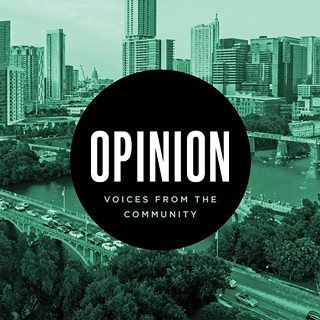Opinion: Sex Ed Is Not the Enemy – It’s Mental Health Care
We can help our communities lead happier, healthier, and more productive lives by increasing access to reproductive health resources
By Isabella Verratti, Fri., Oct. 7, 2022
How did your parents talk to you about sex? Did they talk to you about it at all? In school, did you learn that pants are the most effective form of birth control like I did? Were you allowed to talk about birth control in school? As Texans, many of us were raised with different attitudes toward reproductive health care and information – if we were raised with them at all. These attitudes are becoming more and more important today. You may think that protecting people from things like "sex ed," birth control, and abortion will lead to a happier, healthier, more productive community – but it may not be that simple.
A high school education opens doors to better futures: college, higher-paying jobs, and a better understanding of the world around us. For many teenagers these doors never open. For some reason, they get pregnant – they're uneducated about STD and pregnancy prevention, their birth control failed, or they were sexually assaulted – and for many teenagers this means dropping out of high school or even middle school. Many teenagers have little or no way to prevent or manage an unwanted pregnancy, often due to a lack of education or access to other resources. However, it has been demonstrated that increased access to things like education, STD screenings, birth control, and abortions provided by organizations like Planned Parenthood is associated with fewer high school dropouts. Fewer high school dropouts mean more teenagers receiving that door-opening education, ultimately leading to a happier, healthier, and more intelligent generation of teenagers.
Sexual assault is an unfortunately common experience in our communities. Young women who grew up like many of us did, with an emphasis on morality, religion, and abstinence instead of safety and education in sexual health conversations, more often feel helpless and blame themselves after a sexual assault. These feelings of shame and self-blame may be made worse by their upbringings, making it harder for them to recover from the assault. Adolescents who have survived instances of rape or incest often have a more difficult time accessing reproductive health care for similar reasons: the shame and stigma surrounding their situation, as well as a fear for their safety. Shame, self-blame, and fear are all negative emotions in themselves, but can result in further negative mental consequences. We can help future generations avoid these by giving them the tools to care for themselves.
Though abortion access divides many of our communities today, we know there are a range of mental health implications associated with managing an unwanted pregnancy. There are further negative mental health impacts associated with being denied an abortion. Some of those who seek abortions already live in poverty and cannot afford another child. Those denied an abortion often see an increase in household poverty and are less likely to be able to pay basic living expenses; they are more likely to live with family and use public assistance programs due to their financial position. Many people who were able to access an abortion ultimately felt they made the right decision, even those who were upset about the procedure. Financial stress and poverty resulting from and exacerbated by denied abortions damage the mental health of those denied as well as the mental health of those around them; having access and choices can combat that.
Withholding access to important reproductive health resources like education, birth control, and abortions negatively impacts individuals' mental health – individuals like ourselves, our parents, our children, and our neighbors – which negatively impacts our communities. We can help our communities lead happier, healthier, and more productive lives by increasing access to these resources. Educate yourselves and your children on reproductive health and access to health care, advocate for better and more widespread sexual education in schools, participate in birth control and abortion access funding programs, and vote to put those who care about our health in our local governments.
Isabella Verratti is a senior studying psychology at Colorado State University. Raised in Austin, Texas, she is passionate about mental health as well as issues affecting Texas women and youth.
Got something to say? The Chronicle welcomes opinion pieces on any topic from the community. Submit yours now at austinchronicle.com/opinion.









